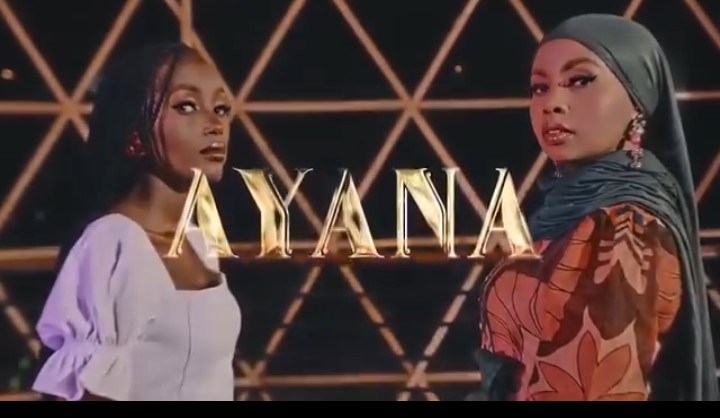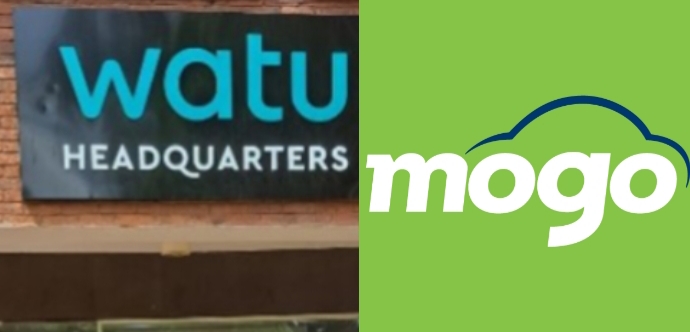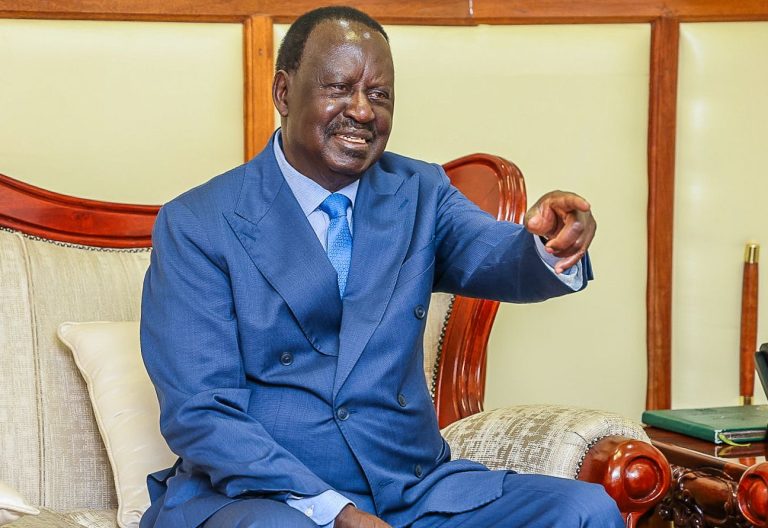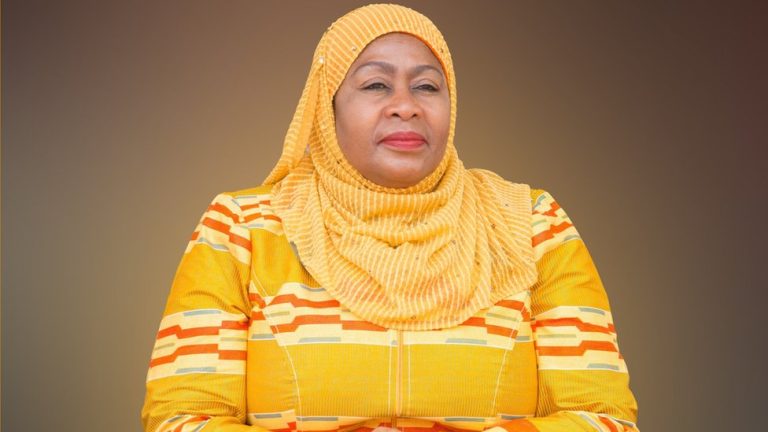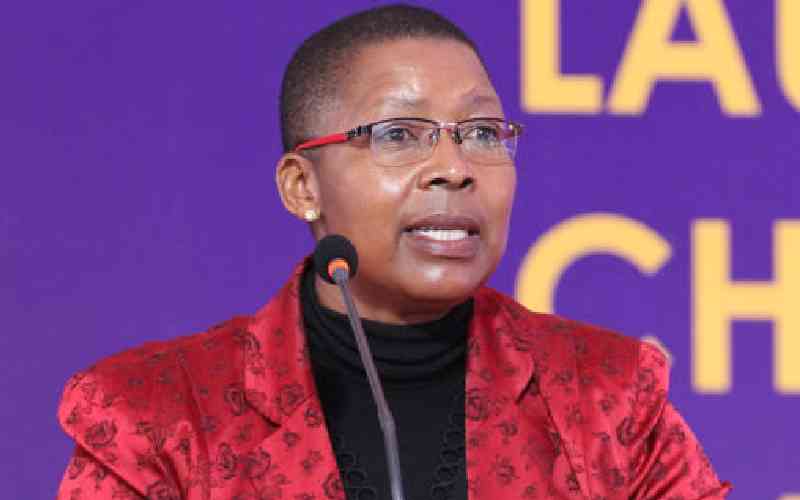
The circulation of a letter shared by former Law Society of Kenya president Nelson Havi has triggered sharp discussion about how the Office of the Attorney General operates and its dealings with private law firms.
The document, which Havi made public through his social media pages, questions the possible blending of government responsibilities with private legal work, raising fresh concerns about transparency and ethics in public service.
The unsigned letter, marked “Private and Confidential,” alleges that government business, including documents labeled as secret, has been handled within the offices of TripleOKLaw LLP, a well-known Nairobi-based private law firm.
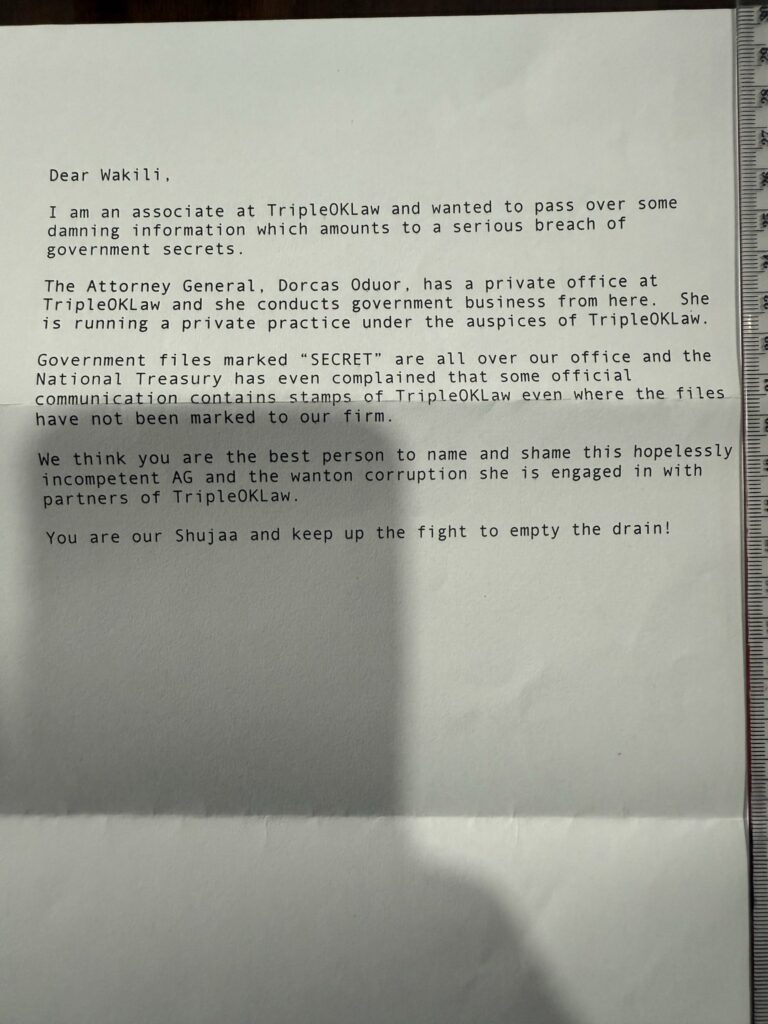
It further suggests that correspondence from key ministries, including the National Treasury, has passed through the firm’s internal systems, a claim that points to possible violations of government protocol and confidentiality rules.
The letter goes on to allege that Attorney General Dorcas Oduor maintains a private office within TripleOKLaw LLP where official matters are said to be conducted.
According to Havi, the message came from a whistleblower who identified themselves as an associate at the firm and who expressed deep concern about the alleged overlap between public work and private legal operations.
The informant described the situation as a breach of professional ethics and confidentiality, calling on Havi to bring the issue to light so that it could be addressed publicly.
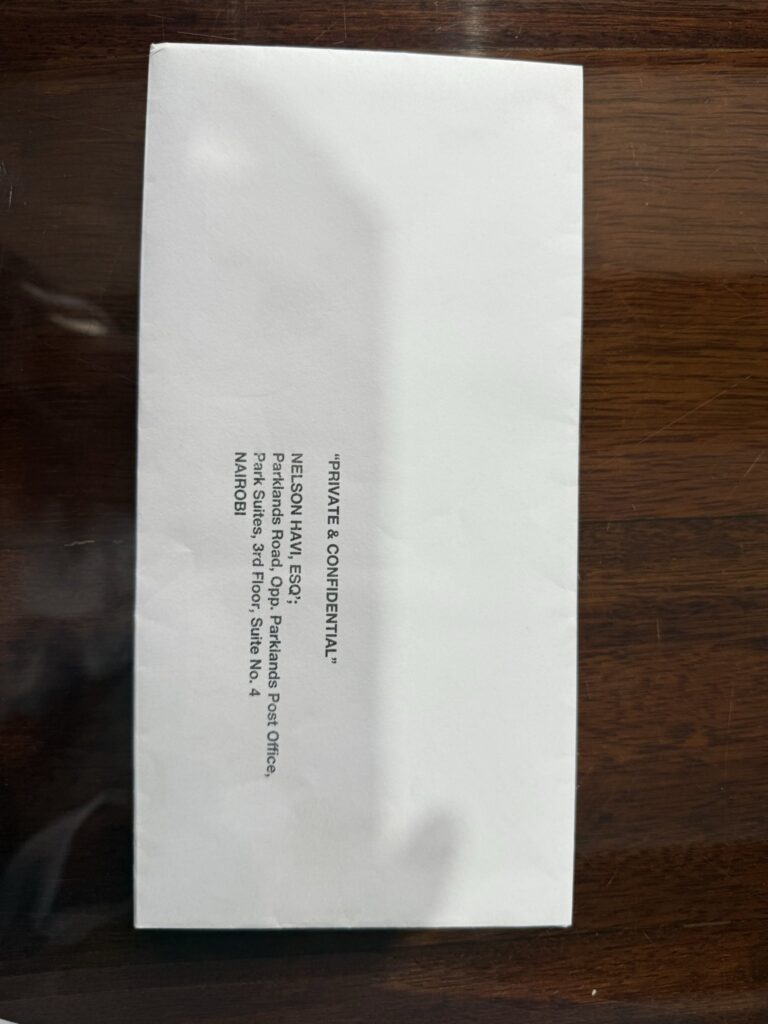
TripleOKLaw LLP, which was established in 2002, is among Kenya’s prominent legal firms, with a wide range of clients that include both private companies and state agencies such as the Kenya Airports Authority and the Kenya Pipeline Company.
The firm is part of Meritas, a global network of independent law practices. Recently, TripleOKLaw made headlines for seeking Ksh 250 million in legal fees from KAA for representing the agency in disputes related to India’s Adani Group, a demand some legal experts have said was unusually high for a case involving a public institution.
Havi, who now chairs the Retirement Benefits Authority, remarked that the letter’s allegations might shed light on why such large fees were being demanded. He questioned whether government-related legal work had been conducted outside the proper public framework and why private firms were billing so heavily for cases that could have been managed internally by the Office of the Attorney General.
He emphasized that the issue was not only about money but also about accountability, integrity, and the public’s right to know how their taxes are used.Attorney General Dorcas Oduor, who became Kenya’s first female AG in 2024, has built a long career in public service.
Before her appointment, she served as Secretary of Public Prosecutions and was part of several national commissions that investigated corruption and misconduct in public institutions. Her position makes her the government’s top legal adviser, responsible for guiding how public bodies engage private lawyers and ensuring such partnerships meet ethical and legal standards.
The claims made in the letter have now drawn attention to larger issues of governance and transparency. If the allegations are true, allowing government files or correspondence to be managed in a private office would represent a serious breach of confidentiality and could undermine the public’s trust in one of the country’s key legal offices.
Legal analysts have pointed out that even the appearance of such an arrangement could damage the credibility of the Attorney General’s office and raise questions about conflicts of interest.
Kenya’s legal framework, through the Advocates (Remuneration) Order and the Constitution, clearly outlines that legal fees for public matters must be justified, taxed, and conducted transparently.
The Attorney General is also required to coordinate all government legal representation to prevent duplication and unnecessary expenditure.
The ongoing discussion sparked by the whistleblower’s letter has therefore become more than just a question of allegations it has opened a wider debate about ethical boundaries, proper conduct, and how to maintain public trust in state institutions.
![]()
